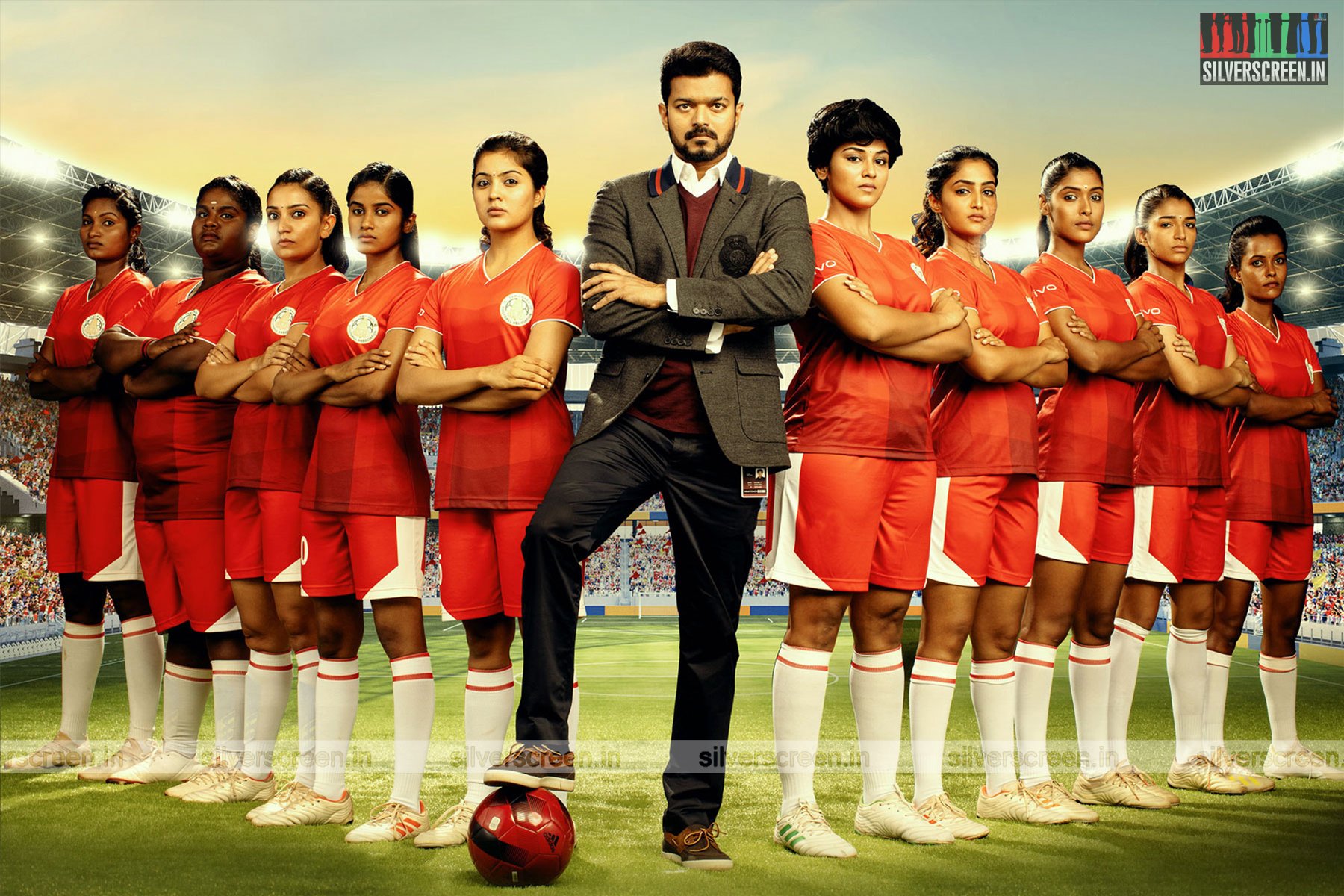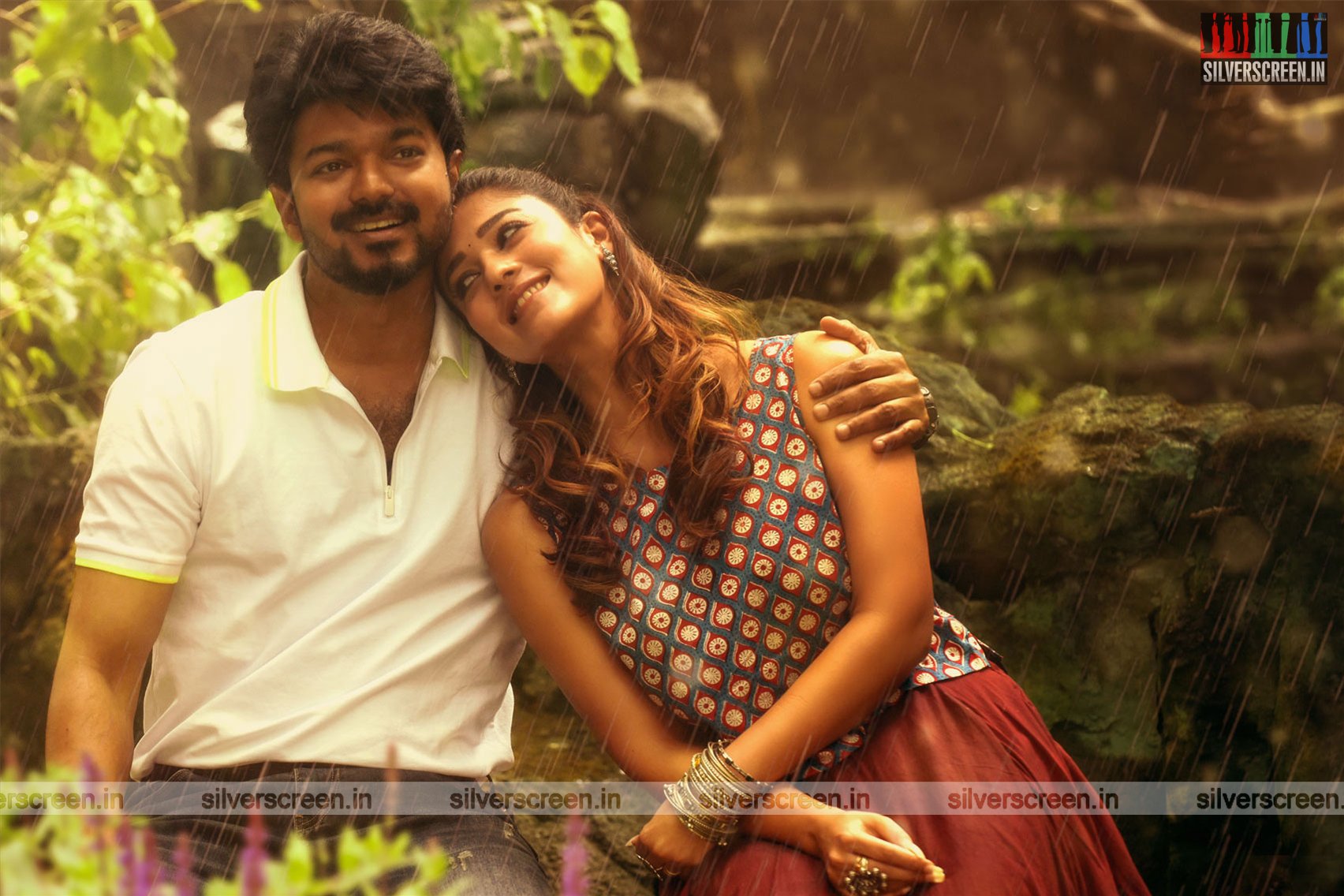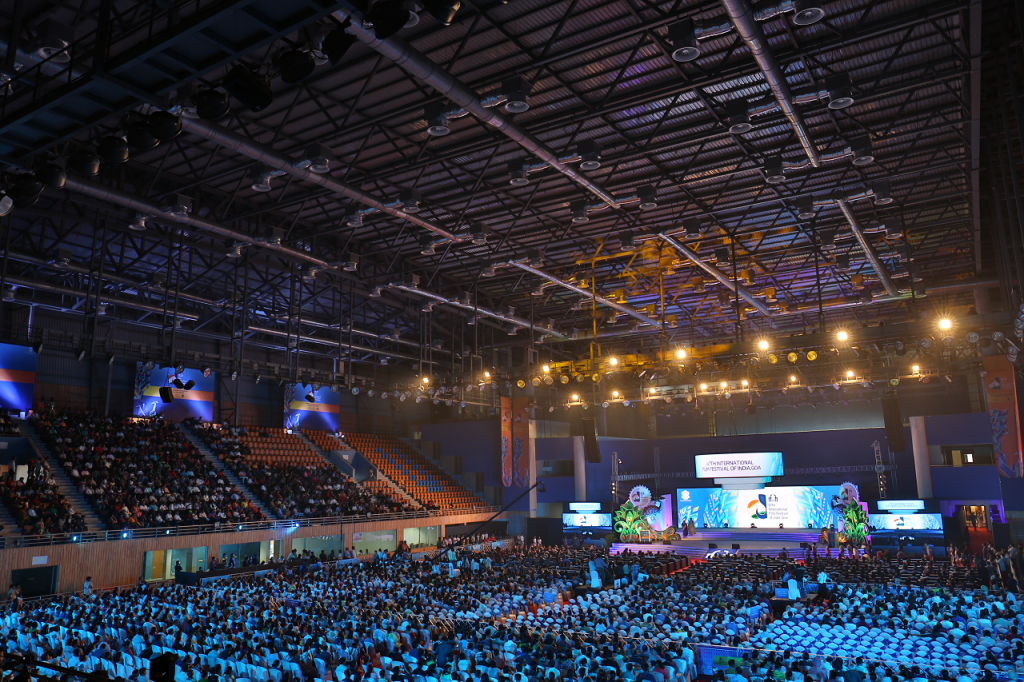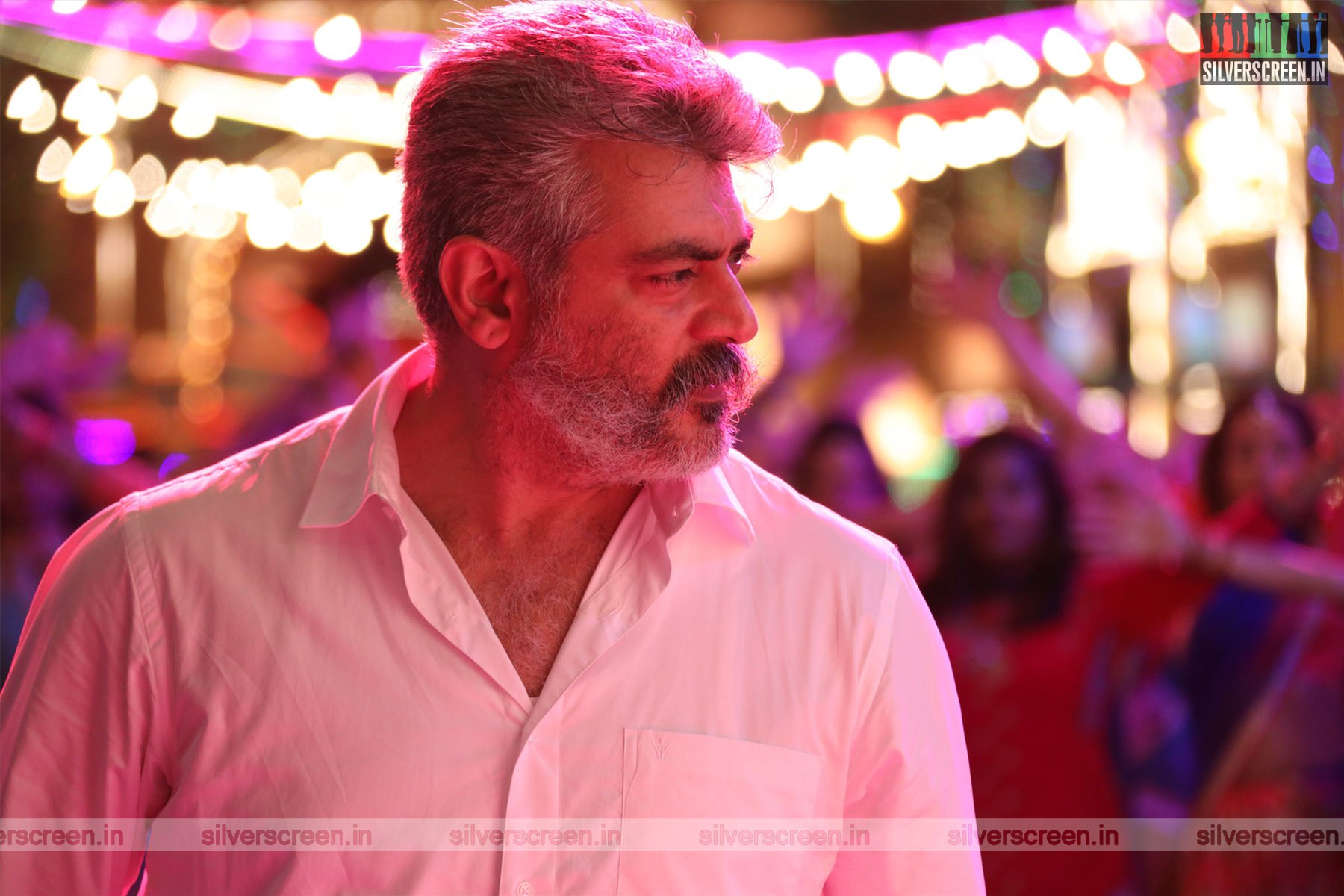Director: Atlee
Cast: Vijay, Nayanthara, Yogi Babu, Varsha Bollamma, Indhuja
I hope my editor does not watch Bigil anytime soon. The next time she wants a rewrite or a story delivered super-fast, she just might do what Vijay does in Bigil — call me gundamma. It’s supposed to fat-shame me into encouragement, you know! Make me land some plum stories or, probably, breaking news.
I’m also thinking of the sensible, professional editors who gave me a job when I was pregnant, without thinking like my ‘akka’ or ‘amma’. Pregnancy is not a disease, but there’s no point screaming that fact.
The film also made me wonder how many men turned saviour to help me realise my true potential that was floundering about without help from a powerful, accomplished man. Last time I counted, none!
Now that I’ve got the three most troublesome things about Bigil out of the way, we can focus on the never-ending festival film that Atlee has set out to make. Let me begin with something positive. After years, you see Vijay the actor again, in parts, when he plays Rayappan. Makes you wonder if directors had tried to look beyond his fabulous dance moves and general on-screen goofiness (can get endearing except when he does bunny hops for a hug, be it with his father or girlfriend, like in this film), we actually might have seen an actor-star, rather than just ‘Thalapathi’. He’s on point as the don forced to take up arms to keep the bad guys at bay, and as the affectionate father who tries his best to get his son far away from fights and into football.

The film is no Chak De, on or without steroids, and it’s important to mention that upfront because that’s the comparison doing the rounds since the film was announced, helped in no small measure by Shah Rukh Khan’s tweet. That Chak De (it was about women’s hockey, this is football) is still being mentioned 12 years after its release is proof of its tightly-written script, and content that entertained without introducing any entertaining elements. But, we have a long way to go there, especially when a film is made with a reigning star.
Bigil is also not about women’s empowerment, even if it has two women-centric anthems, ‘Maadharey’ and ‘Singapenney’.
It is about a man getting in touch with his past avatar, and fulfilling his father’s last wish through a bunch of girls, most of whom come with sad backstories, and two with current sad stories (Varsha’s Gayathri, who is married off to a man who believes women must rule the home, before he is told otherwise, again by the hero and heroine; and Anitha, an acid attack survivor; she shows some steel, mercifully). Throw in some fat-shaming, some pregnancy gyaan (which backfires big time, because while the examples of Serena Williams and Mary Kom are cited, our pregnant player is told to sit out, before being called for the penalty shootout), a love story that works in parts, some gory violence and the saviour trope, and here’s your film. The most endearing bond on screen is the one shared between the two Vijays — the utterly dignified, stylish Rayappan and a young Bigil.

Nayanthara as Angel looks well-made up on screen, as is the norm these days, whether she plays a CBI officer, a student of physiotherapy or a doctor; not a hair is out of place. Her best scenes are at the altar — she says no innumerable times, to the exasperation of the priest. But then you wonder how someone who seemingly has a mind of her own happily accepts Bigil’s reasoning that calling an obese player gundamma and ridiculing her fondness for food is akin to lighting the spark to get her to play well. And while at it, what’s with the deeply insensitive background score when Pandiyamma is on screen?
This point especially rankles, like a friend rightfully pointed out, because when the boys play and are in a similar situation, they get encouraged by saying they should stop defending the opponents’ goals and start scoring their own. So, why is it right for our hero to presume only shaming/seething with rage can get girls to play well? To top it all, after all the dialogue about playing for the team, the State, et al, the girls wear jerseys with Bigil written on them.
This is not a film where you go in expecting some deft football techniques; despite that, it all comes across as too filmy. You also expect better of the stunts (Anl Arasu); after all, Vijay’s major draws are his dancing skills and deftness in stunt sequences. This film needed a better antagonist; you have two in Daniel Balaji and Jackie Shroff, but they are not so well written as to allow Vijay’s character to pit his skills against them. A good hero needs a good villain, and Bigil’s biggest drawback is that.
Yes, people have made films that run beyond three hours. But, when a film runs to 178 minutes in this day and age when directors manage a lot even within two hours, it needs enough conflict and emotion and meat to keep it going. You need to feel invested. That’s something Bigil sorely needs. The film seems like a set of sequences stitched together in haste. Some work, most don’t. In comparison, the matches in Chak De give you goosebumps even now, after multiple viewings.
Agreed, this was not a film made to please reviewers or even those looking for some logic and sensitivity in a script, but Atlee could have tried a little more. If only a portion of the humongous budget (Rs 180 crore) had been diverted to a writing team that would make the most of a premise that looks good on paper — a former player taking on coaching duties for a bunch of girls who aspire to football greatness.
Yogi Babu and body-shaming go hand-in-hand these days, only this time around, he’s shaming others, including Manobala, who gets called a skeleton and an old lady who is ridiculed constantly. Kathir, that rare, lovely performer who can own every frame, is wasted in a blink-and-miss role. Criminal, considering we know what he’s capable of. Something similar happens to Indhuja, who is also a performer.
The biggest problem with Bigil is that you can’t rage or get over-enthusiastic about it. The film strives so hard to hit the middle ground. It says something in one scene, something totally different in another, and then settles for an in-between happy spot in the third. Atlee has many hits in his oeuvre now, and this kind of filmmaking has become his trademark, but once in a while, just once in a while, it would pay to practice that glorious line: show, don’t tell! When you’re expecting something to happen, you want to see it happen; you don’t want some onscreen character to tell you that hey, look ma, this is going to happen.
Recommended
Bigil has everything going for it technically. Cinematographer GK Vishnu lights up every frame with care and lends it the look of a festival film; where the grit is seen, but through a patina of gloss. Choreographer Dinesh Master has a great dancer to work with, and it shows in the final output. The dances are lit, and some steps will find themselves recreated pretty soon during college culturals, among the greatest validation. Music by AR Rahman has been much discussed, but music is not one of the strong points of this film.
Sometime during the first half, a character asks: ‘Enna Nadakudhuinge Raman?’ (What’s happening, Raman?) Quite mirrors what the audience wants to ask too. And, there’s a male angle here too, like through the rest of the film.
The Bigil review is a Silverscreen original article. It was not paid for or commissioned by anyone associated with the film. Silverscreen.in and its writers do not have any commercial relationship with movies that are reviewed on the site.



